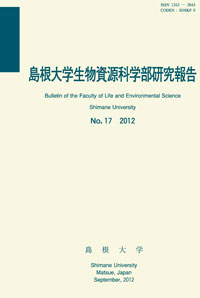島根大学生物資源科学部
ISSN:2435-0885(オンライン)
ISSN:1343-3644(冊子体)
なお、冊子体の刊行は23巻まで
ISSN:1343-3644(冊子体)
なお、冊子体の刊行は23巻まで

ダウンロード数 : ? 件
この文献の参照には次のURLをご利用ください : https://ir.lib.shimane-u.ac.jp/7064
島根大学生物資源科学部研究報告 15
2010-09-30 発行
インドネシアにおける個人レベルの食料充足度に関する考察
A Study of Individual Food Adequacy in Indonesia
松本 寿子
石田 章
横山 繁樹
ファイル
内容記述(抄録等)
This article clarifies factors affectingthe level of individual food adequacy, measured on a subjective basis, in Indonesia. Results of ordered logit model clearly indicate that gender, education, changes in subjective economic status, social capital and asset holdings affect positively individual food adequacy, and age, dependency ratio and opportunity loss of reaping benefits from RASKIN program negatively. In addition, significant regional differences in individual food adequacy were found.
About This Article
Other Article
PP. 11 - 13
